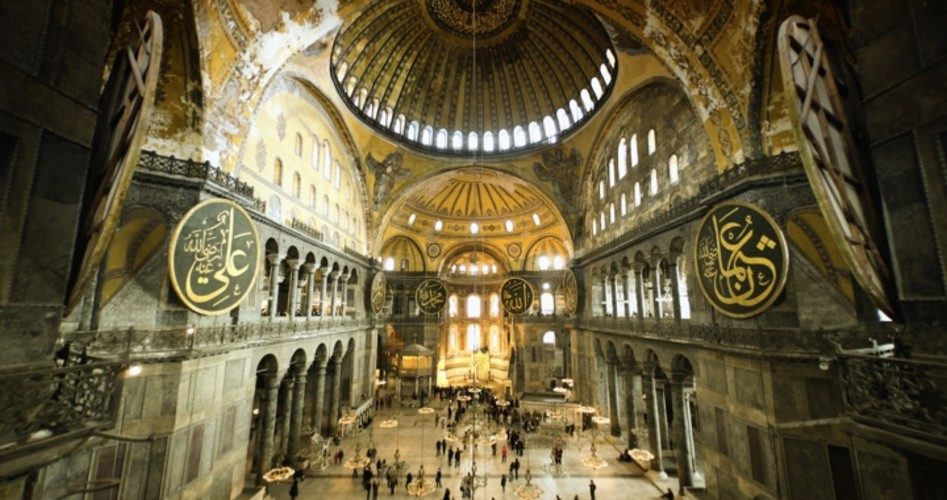
Turkish President Recep Tayyip Erdogan announced on July 10 that the venerable building known as the Hagia Sophia (shown) would be converted into a mosque.
Erdogan’s order follows a ruling by the Turkish Council of State (the nation’s highest court) to reverse the 1935 order by the first president of the Republic of Turkey that transformed the Hagia Sophia from a mosque into a secular museum. Erdogan told a press conference that the first Muslim prayers would be held inside the building on July 24.
“Like all our mosques, the doors of Hagia Sophia will be wide open to locals and foreigners, Muslims and non-Muslims,” Erdogan added.
The decision drew immediate adverse reaction from leaders throughout the Christian world, who criticized the change in status of a structure long considered by Christians to be a sacred place worthy of veneration — despite being under Muslim control for centuries.
{modulepos inner_text_ad}
The Istanbul-based Ecumenical Patriarch Bartholomew I, considered the spiritual leader of the world’s Orthodox Christians, warned that the building’s conversion into a mosque “will turn millions of Christians across the world against Islam.”
Patriarch Kirill, the head of the Russian Orthodox Church, said: “A threat against Hagia Sophia is a threat to all of Christian civilization, meaning (a threat to) our spirituality and history. What could happen to Hagia Sophia will cause deep pain among the Russian people.”
Speaking from the Vatican on July 12, Pope Francis, spiritual leader of the world’s 1.2 billion Roman Catholics said on a day designated as “International Day of the Sea”: “And the sea brings me a little far away with my thought: to Istanbul. I am thinking of St. Sophia and I am deeply pained.”
The World Council of Churches, sent a letter to Erdogan on July 11 that stated, in part:
[We] convey to you the grief and dismay of the World Council of Churches … at the step you have just taken. By deciding to convert the Hagia Sophia back to a mosque you have reversed that positive sign of Turkey’s openness and changed it to a sign of exclusion and division. Regrettably, this decision has also been taken without prior notice or discussion with UNESCO regarding the impact of this decision on Hagia Sophia’s universal value recognized under the World Heritage Convention.
The chairman of the Foreign Affairs Committee of the upper house of the Russian parliament, Konstantin Kosachev, warned Turkey that it “will be seen as a violator of religious balance in the eyes of the whole world.”
Control of the Hagia Sophia has shifted many times over the centuries since it was built in 537 as the Byzantine Christian cathedral of Constantinople. After the schism of 1054 between the Eastern and Western churches, it became a Greek Orthodox cathedral. After the Fall of Constantinople to the Ottoman Empire in 1453, it was converted to a mosque. In 1935, the modern state of Turkey, which superseded the old Ottoman Empire, secularized the Hagia Sophia into a museum.
Photo of Hagia Sophia: funky-data / E+ / Getty Images Plus
Warren Mass has served The New American since its launch in 1985 in several capacities, including marketing, editing, and writing. Since retiring from the staff several years ago, he has been a regular contributor to the magazine. Warren writes from Texas and can be reached at [email protected].



